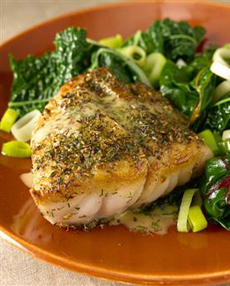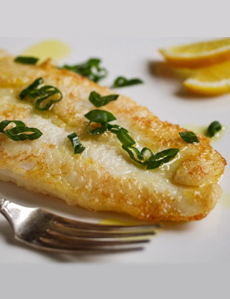ISSUE: Seafood Fraud
|
There’s a reason you may not want to buy grouper or snapper, unless the establishment has purchased the whole fish and done its own filleting.
Something similar goes for anything touted as wild shrimp or Gulf shrimp: There’s a 30% chance or more that it’s plain old farmed shrimp. It’s easy to fall victim to seafood fraud, a costly problem that won’t go away because of unscrupulous suppliers. Restaurants and retailers are victims, and unwittingly sell cheaper, mislabled varieties to consumers. The fraud exists when fish distributors deliberately mislable cheaper varieties for more expensive, popular ones. Imported basa and swai (whitefish species you’ve probably never heard of) are substituted for the much-in-demand grouper and snapper. Why the bait-and-switch? Because there isn’t enough domestic supply of the desirable varieties. Imported “fakes” are substituted, and the difference only becomes clear only after the fish is cooked. The flavor and texture is simply not as good. It’s easy to tell these varieties apart when they come out of the water. But once the fish is filleted, or the shrimp is cleaned, there is no head, scale, or other visual identifier to prove its variety. It’s not that you won’t get an edible piece of fish. It has no deleterious effect. But it won’t taste as good as the original, and you’ll the price of the better species. |

Grouper is a very popular fish, but unscrupulous dealers sell cheaper fish and claim it’s grouper. Photo of fennel-crusted grouper courtesy McCormick. Here’s the recipe. |
|
|
Food Hospitality, a restaurant industry website, reports on new studies conducted separately by the U.S. Food and Drug Administration and Oceana, the international ocean conservation organization. Both studies found extensive mislabeling problems at the wholesale level, largely focused on the easy-to-substitute species grouper and snapper. Last year, Oceana looked at 1,200 fish samples from across the U.S. and found that roughly one-third were mislabeled according to FDA standards. A separate study of shrimp, America’s most-consumed fish or seafood, showed that 31% of restaurants sold misrepresented products, while 41% of retail markets sold misrepresented products. Whatever species is being mislabled, retailers and restaurants get duped off as well as the consumer. Everyone overpays for lesser-quality fish and shellfish. Consumers, finding their dish less palatable than they had hoped, can bash the establishment online. Everyone loses. The FDA says that slow progress is being made on the mislabeling front. A presidential task force is looking at the problem. |
||
 Basa, a type of catfish, is a cheaper fish often sold as grouper. Unfortunately, it lacks grouper’s particular flavor. Photo courtesy TimesColonist.com. |
But there is hope around the corner for fans of grouper. Checking The RNA Of The Fillet Researchers at the University of South Florida College of Marine Science have come up with a solution to the grouper problem. Their new product, GrouperChek, is a handheld sensor capable of sniffing out fish fraud on the fly. Wholesalers and others can assay seafood samples using real-time nucleic acid sequence-based amplification. The instrument identifies whether the RNA is a match. The researchers say the device is so sensitive, it can detect fake grouper even after the fish has been cooked, breaded and sauced. Hopefully, now, the seafood supplier will do this testing before agreeing to buy the fish. |
|
|
|
||

